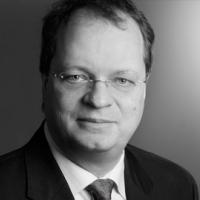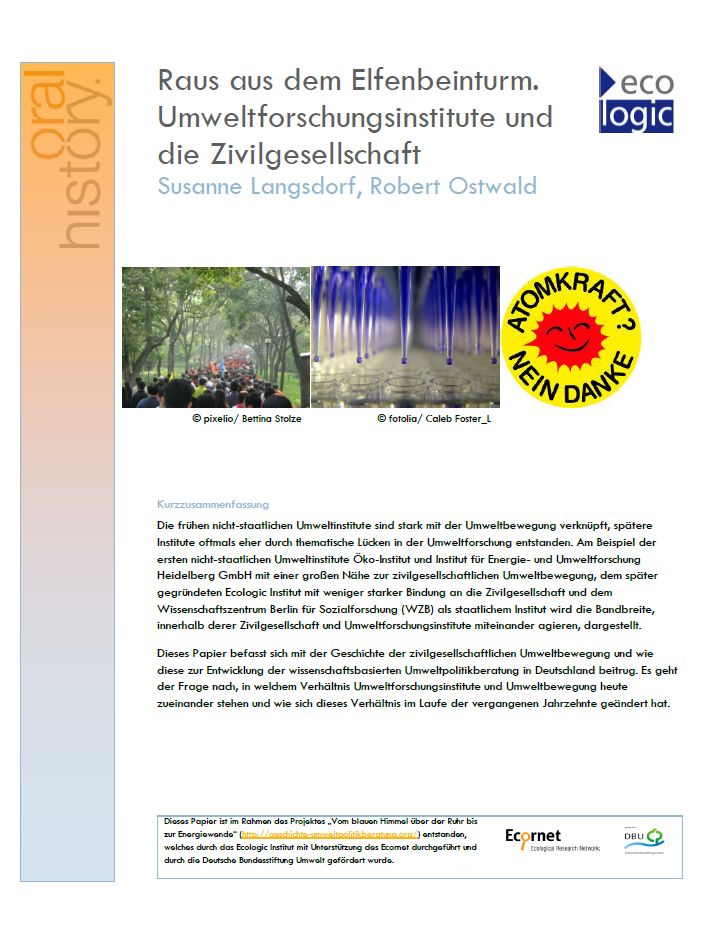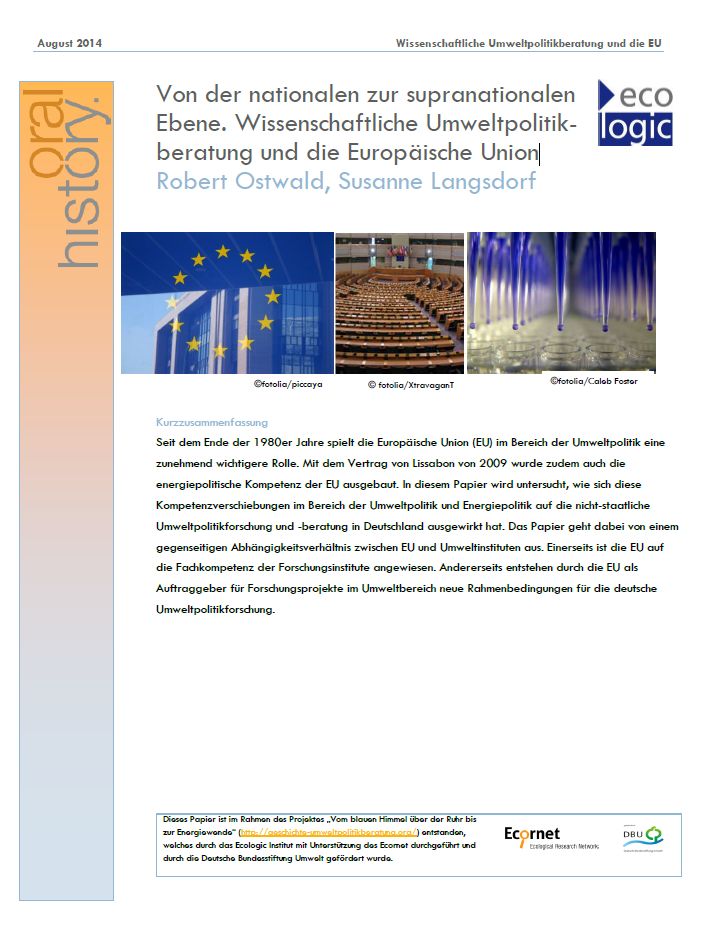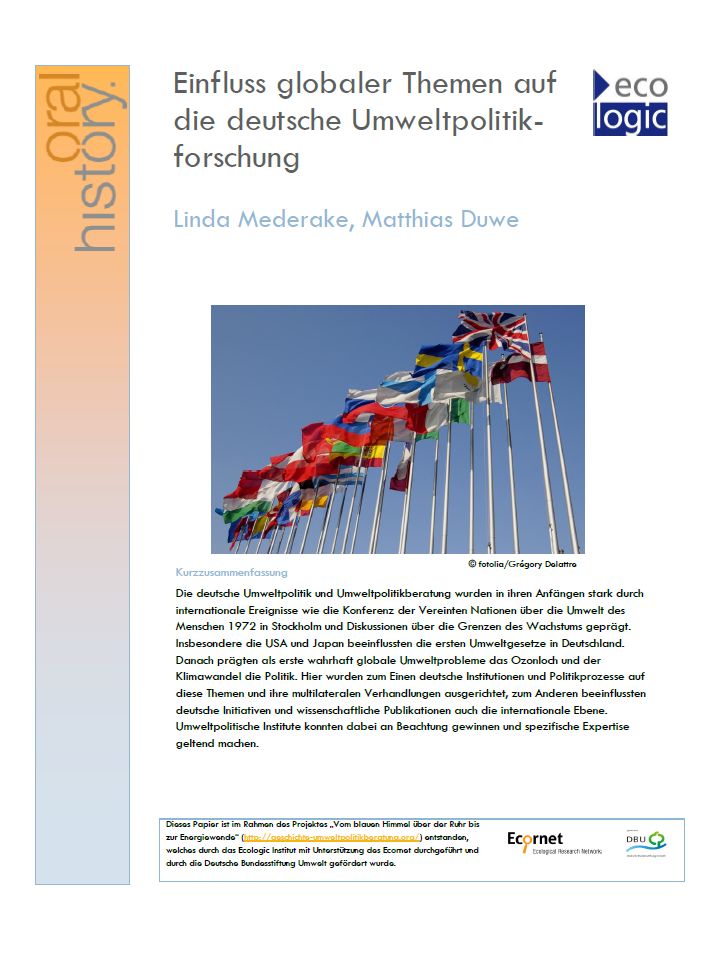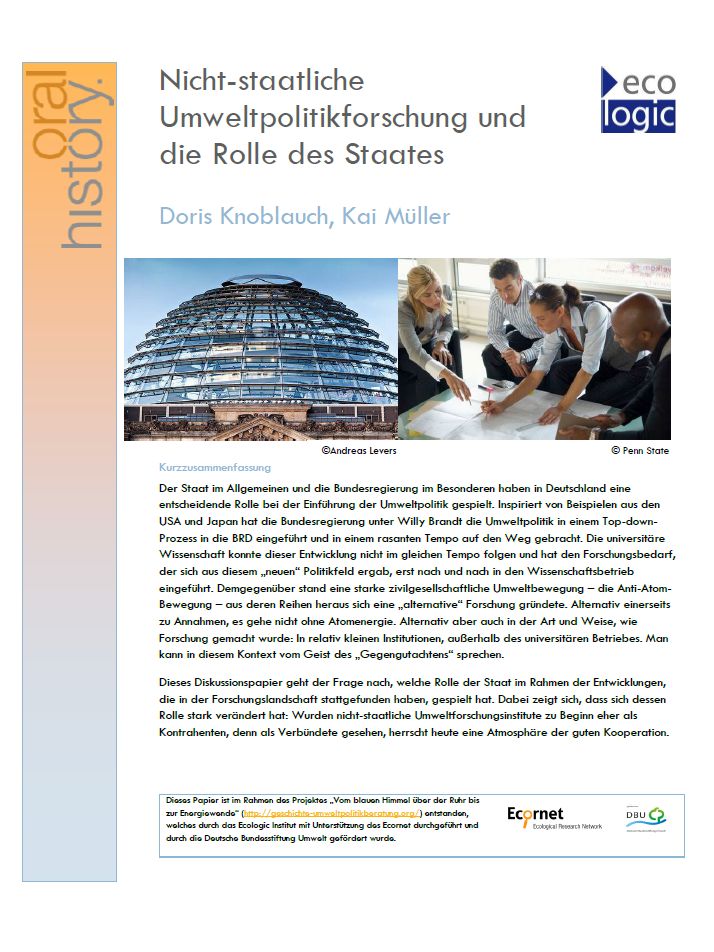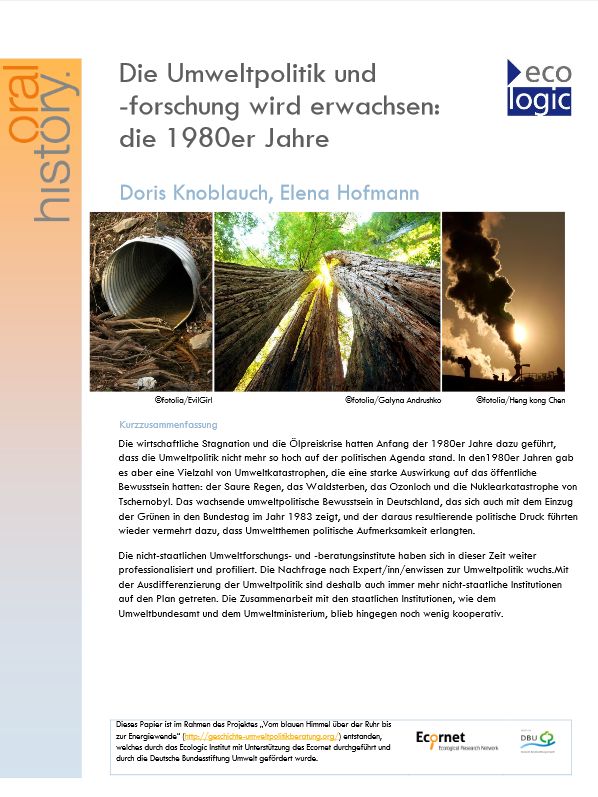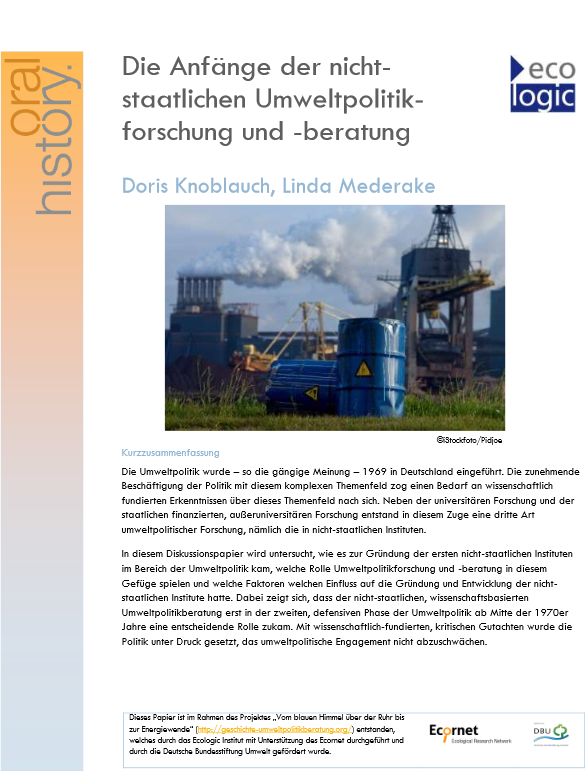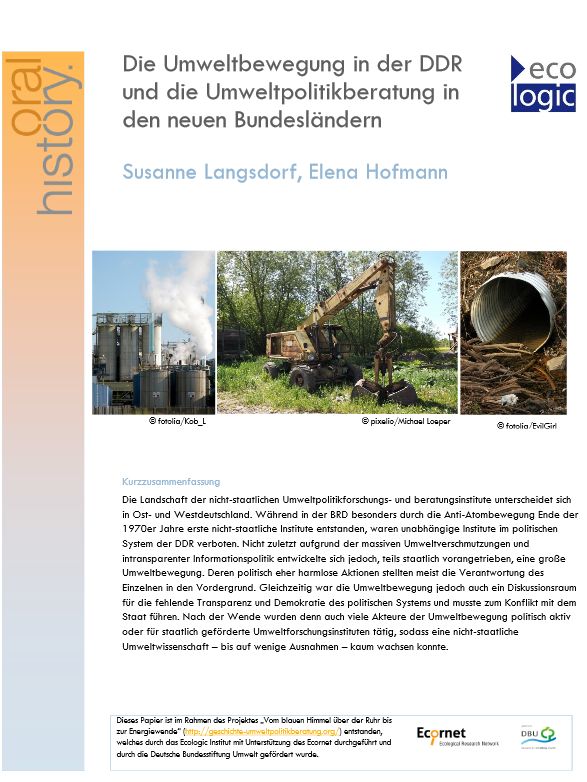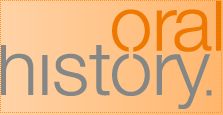From Student Research Groups to the Cornerstones of German Environmental Research - the First Environmental Research Institutes in Germany
- Event
- Date
-
- Location
- Berlin, Germany
- Speaker
-
Dr. Ulrich Höpfner
On 29 May 2013, Dr. Ulrich Höpfner and Prof. Dr. Martin Jänicke reviewed the beginnings of environmental policy research in Germany. The event was part of the project "From 'The Blue Sky above the Ruhr' to the Energiewende", which aims at illuminating the beginnings and the development of environmental policy consulting in Germany. It dealt with the citizen protests around environmental issues during the 1970s—such as the protests against the nuclear power station Wyhl—and the resulting development of a critical approach to environmental science. These developments resulted in the foundation of different independent environmental research institutes in the late 1970s and 1980s, such as the Öko-Institut, the IFEU, and the Environmental Policy Research Centre (FFU). The event was moderated by R. Andreas Kraemer. It took place at Ecologic Institute, Berlin. A video of the event can be found online.
Dr. Ulrich Höpfner is one of the founding directors of the Institut für Energie- und Umweltforschung (IFEU) and was from 1978 to 2009 Executive Director. Prof. Dr. Martin Jänicke is a founding director of the Environmental Policy Research Centre (FFU) at Freie Universität Berlin, which he also headed for many years.
The conflict over critical environmental science represented the struggle for the freedom of science on a larger scale. Dr. Höpfner emphasized the importance of the student movement for the birth of critical science. "Nuclear energy was so widely accepted that critical science hardly existed," commented Dr. Höpfner. Especially during the protests against the nuclear power plant (NPP) in Wyhl 1973, the need for critical science became evident. Therefore the environmental movement approached student groups at the Universities of Heidelberg and Freiburg, which were working on environmental issues. At the University of Heidelberg the "Tutorium Umweltschutz" was held with a group of about 50 undergraduate and graduate students. The tutorial elaborated on a report by the NPP, which shed light on scientific flaws in the official report that had been provided to back the proceedings of the NPP in Wyhl. The young critical scientists quickly became experts backing the environmental movements in the court proceedings that followed. In the case of Wyhl, the protest and new scientific input led to delays in construction and an increase of safety requirements and therefore costs. The NPP Wyhl never received an operating license.
The nuclear-critical science undertaken by the young researchers and the publicity it received via the protest shook the very foundations of the established sciences. The universities were almost exclusively pro-nuclear and dismissed the critical scientists. The young scientists were temporarily banned from university. In addition, the University of Heidelberg was worried about its reputation and attempted to take legal action against the student groups. Thus, the separation of the critical scientists from their universities was only a matter of time. In 1977, the Freiburg student group founded the Öko-Institut. Shortly after, the "Tutorial Umweltschutz" founded the IFEU. The two institutes dealt with reactor safety, the impact of radioactivity on humans and the environment, and problems regarding the disposal of nuclear waste.
Prof. Dr. Jänicke worked at the Otto-Suhr-Institute at the Free University of Berlin at this time. The institute was famous for a strong leftist profile, but nevertheless remained part of the classic university apparatus. Prof. Dr. Jänicke emphasized the rigid discipline-related ideologies: "If you were an economist, you were against environmental protection. The critical science was not born at the universities." The confrontation between the established and the critical science was presented as a contrast between 'serious' and 'controversial 'science', in which critical scholars have been massively discredited. "We paid a high price for being critical scientists" stated Prof. Dr. Jänicke. This was particularly true for scientists of the independent institutions, but also for scientists within the universities. In retrospect, however, both experts valued credibility and thus obtained special rewards for their work.
It was only in the eighties that the universities began to move. A few days before the Chernobyl disaster in 1986, the Research Centre for Environmental Policy (FFU) at the Free University was founded. Prof. Dr. Jänicke recalled a tender of the Ministry of Economic Affairs shortly after Chernobyl on whether Germany could get out of nuclear energy. According to Prof. Dr. Jänicke the Ministry was expecting a report from a pro-nuclear institution. However, due to short deadlines and the timing, only the coal-friendly Rhine-Westphalia Institute for Economic Research and the FFU entered the bid. Both argued that an exit from nuclear energy was possible. The report was covered widely in the press, although environmental issues were addressed only marginally by the media at this time. This serves as an indicator that the scientific basis for anti-nuclear policy advice was built between 70s and 1986.





